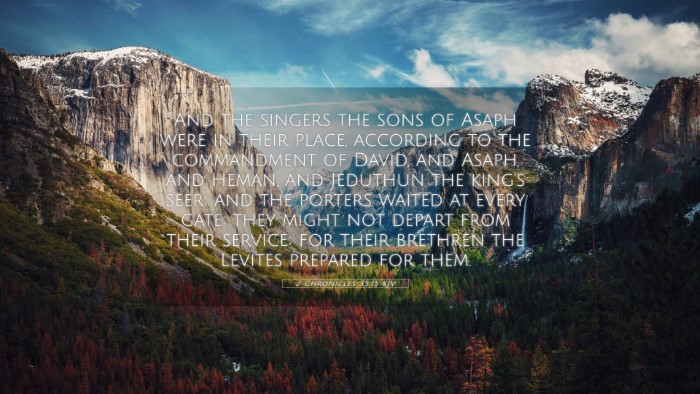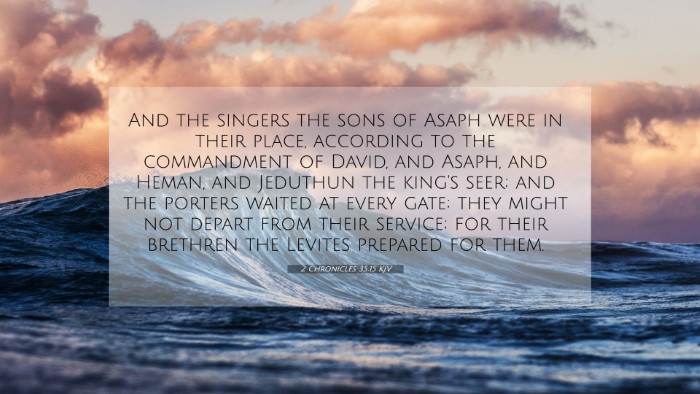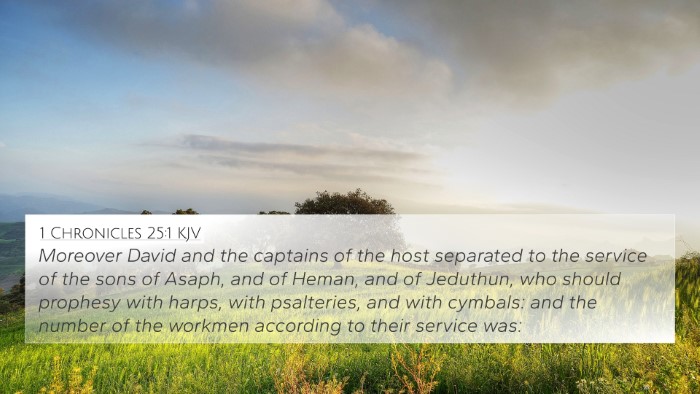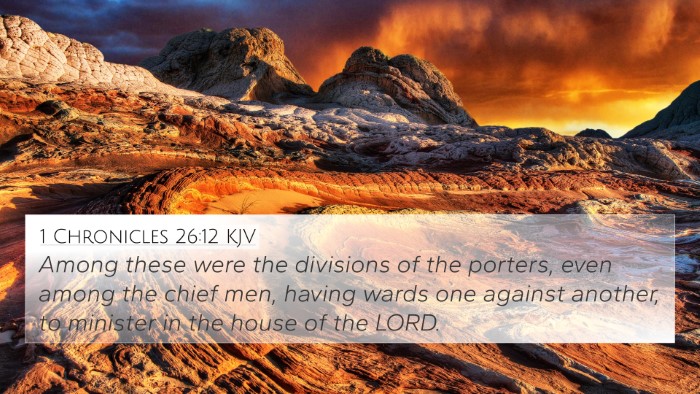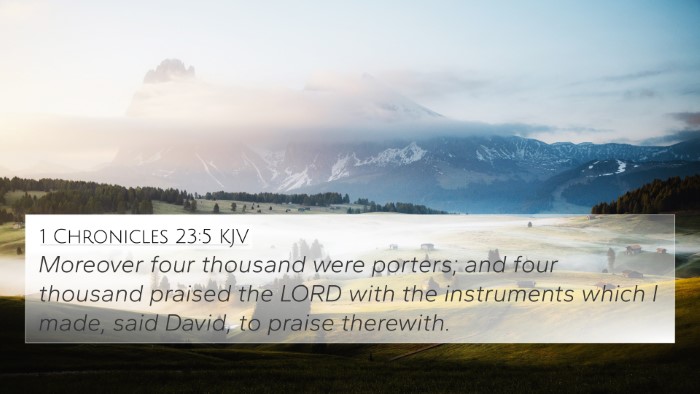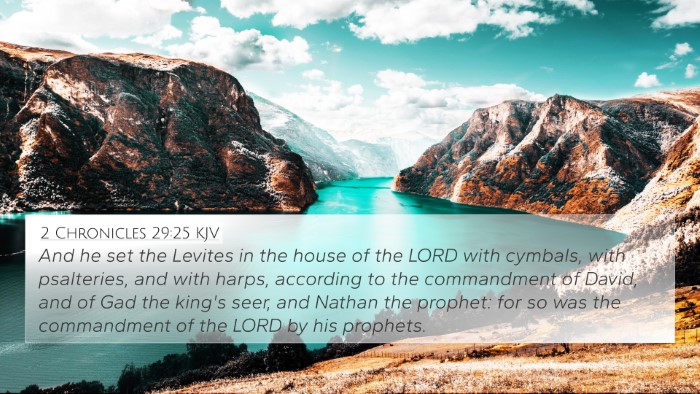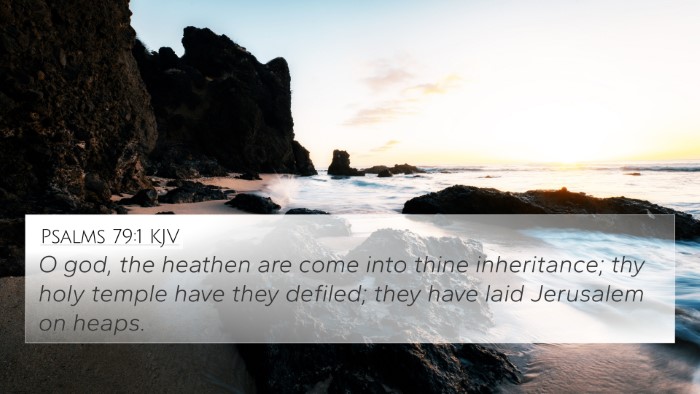Understanding 2 Chronicles 35:15
“And the singers, the sons of Asaph, were in their place, according to the commandment of David, and Asaph, and Heman, and Jeduthun, the king's seer; and the porters waited at every gate; they might not depart from their service; for their brethren the Levites prepared for them.”
Summary of the Verse
This verse depicts the organization of worship during the celebrations associated with the Passover under King Josiah. The Levites, including singers and porters, strictly adhered to the instructions given by King David and others. Their roles were clearly defined, emphasizing the importance of order and dedication in worship within the temple service.
Interpretation Insights from Commentaries
- Matthew Henry: Henry emphasizes the significance of singers and porters, illustrating how integral music was in worship. The order maintained reflects God’s desire for worship to be done decently and in order, which is a theme throughout the Scriptures.
- Albert Barnes: Barnes focuses on the commandment of David, stressing that the arrangements made by King Josiah were rooted deeply in the historical patterns established by previous kings. This illustrates a continuity in worship that the Israelites were to uphold.
- Adam Clarke: Clarke notes the historical context, showing how the Levites were committed to their roles and how this dedication was essential for the smooth conduct of worship. His commentary also reflects on the spiritual symbolism of appointed roles in ministry.
Thematic Bible Connections
2 Chronicles 35:15 underscores themes of service, dedication, and worship. The structured approach to worship mirrors other scripture texts that address the need for organization in spiritual practices.
Cross-References:
- 1 Chronicles 6:31-33 - Describes the roles of the Levitical singers.
- Psalm 150 - Calls for praises through music, reflecting the purpose of the singers.
- 2 Chronicles 29:25-30 - Highlights the establishment of musical worship in the temple by Hezekiah.
- 1 Chronicles 25:1-6 - Details David's organization of musicians for temple worship.
- Nehemiah 12:27-43 - Discusses the roles of singers and their duties during religious festivities.
- Exodus 15:1 - “Then sang Moses…” introducing the idea of song in worship following redemption.
- 1 Samuel 10:5 - Samuel established music as part of prophetic worship, a precursor to organized liturgy.
- Hebrews 10:25 - Encourages believers to not forsake assembling, akin to the gathering for worship depicted in Chronicles.
- Matthew 26:30 - Jesus and His disciples sang a hymn after the Last Supper, reflecting the continuity of musical worship.
- Acts 16:25 - Paul and Silas sang hymns while imprisoned, demonstrating the power of worship in difficult times.
These verses together provide a comprehensive picture of how worship, music, and order have always intertwined within the faith community.
Importance of Cross-Referencing in Bible Study
Utilizing Bible verse cross-references enhances our understanding of 2 Chronicles 35:15. By examining related scriptures, one can apprehend the broader biblical narrative regarding worship practices.
Consider these tools for deeper study:
- Bible concordance: A useful resource for locating terms and themes across scriptures.
- Bible cross-reference guide: Tools designed to direct readers to related passages.
- Cross-reference system: Various systems categorize verses thematically, simplifying the search for connections.
- Bible reference resources: Compilation of verses that interact with themes from 2 Chronicles.
- Cross-referencing Bible study methods: Techniques for discovering interconnections while studying texts.
Conclusion
The verse 2 Chronicles 35:15 not only reflects a moment in Israel’s history but also presents timeless principles regarding worship. Understanding this scripture requires engaging with the whole story told in the Bible, and the use of scriptural cross-referencing allows for a deeper exploration of its themes and implications.

